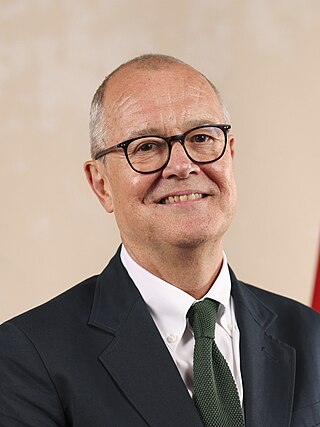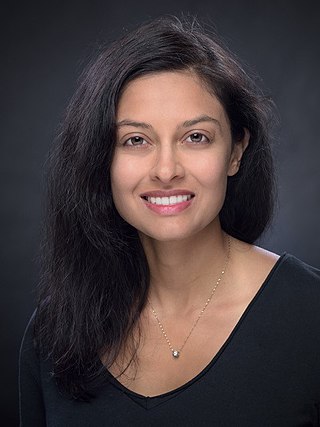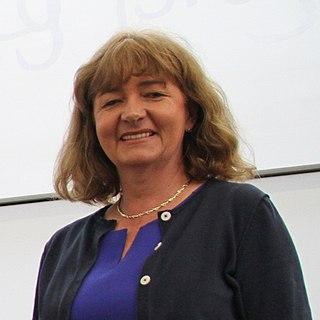Susan Fiona Dorinthea Michie is a British academic, clinical psychologist, and professor of health psychology, director of The Centre for Behaviour Change and head of The Health Psychology Research Group, all at University College London. She is also an advisor to the British Government via the SAGE advisory group on matters concerning behavioural compliance with government regulations during the COVID-19 pandemic. In 2022, she was appointed Chair of the World Health Organisation’s (WHO) Technical Advisory Group on Behavioural Insights and Sciences for Health.

Dame Angela Ruth McLean is professor of mathematical biology in the Department of Biology, University of Oxford, and Chief Scientific Adviser to the UK Government.

Dame Sally Claire Davies is a British physician. She was the Chief Medical Officer from 2010 to 2019 and Chief Scientific Adviser at the Department of Health from 2004 to 2016. She worked as a clinician specialising in the treatment of diseases of the blood and bone marrow. She is now Master of Trinity College, Cambridge, appointed on 8 February 2019, with effect from 8 October 2019. She is one of the founders of the National Institute for Health and Care Research.
The Advisory Committee on Dangerous Pathogens (ACDP) is a UK-wide advisory committee. It was established in 1981, and the terms of reference were revised in 1991 to allow for a wider remit.
Sir Gordon William Duff, is a British medical scientist and academic. He was principal of St Hilda's College, Oxford, from 2014 to 2021. He was Lord Florey Professor of Molecular Medicine at the University of Sheffield from 1991 to 2014.

Sir Jeremy James Farrar is a British medical researcher who has served as Chief Scientist at the World Health Organization since 2023. He was previously the director of The Wellcome Trust from 2013 to 2023 and a professor of tropical medicine at the University of Oxford.

Patrick John Thompson Vallance, Baron Vallance of Balham, is a British physician, scientist, Life Peer, and clinical pharmacologist who serves as Minister of State for Science in the Department for Science, Innovation and Technology since July 2024. He previously served as HM Government chief scientific adviser from 2018 to 2023.

Sir Christopher John MacRae Whitty is a British epidemiologist, serving as Chief Medical Officer for England and Chief Medical Adviser to the UK Government since 2019.

Dame Jennifer Margaret Harries is a British public health physician who has been the chief executive of the UK Health Security Agency (UKHSA) and head of NHS Test and Trace since May 2021. She was previously a regional director at Public Health England, and then Deputy Chief Medical Officer for England from June 2019 until her UKHSA appointment in 2021.

Devi Lalita Sridhar FRSE is an American public health researcher, who is both professor and chair of global public health at the University of Edinburgh, Scotland. Her research considers the effectiveness of public health interventions and how to improve developmental assistance for health. Sridhar directs the University of Edinburgh's Global Health Governance Programme which she established in 2014.
The New and Emerging Respiratory Virus Threats Advisory Group (NERVTAG) is an advisory body that advises the United Kingdom Government's Chief Medical Advisor / Chief Medical Officer for England, who in turn advises the UK Department of Health and Social Care and relevant ministers regarding threats from viral respiratory tract infections. The body replaced the UK Scientific Pandemic Influenza Advisory Committee (SPI) as part of a move to expand the scope to cover the threat of other respiratory viruses, besides pandemic influenza. The inaugural meeting was held on 19 December 2014 where the terms of reference were agreed. The group has been advising the Department of Health for some years and minutes of meetings are now regularly published, backdated to 2014. As of 2020, the group has been advising specifically on the COVID-19 pandemic.

Sir Jonathan Stafford Nguyen Van-Tam is a British physician specialising in influenza, including its epidemiology, transmission, vaccinology, antiviral drugs and pandemic preparedness.
Exercise Cygnus was a three-day simulation exercise carried out by the UK Government in October 2016 to estimate the impact of a hypothetical H2N2 influenza pandemic on the United Kingdom. It aimed to identify strengths and weaknesses within the United Kingdom health system and emergency response chain by putting it under significant strain, providing insight on the country's resilience and any future ameliorations required. It was conducted by Public Health England representing the Department of Health and Social Care, as part of a project led by the "Emergency Preparedness, Resilience and Response Partnership Group". Twelve government departments across Scotland, Wales and Northern Ireland, as well as local resilience forums (LRFs) participated. More than 950 workers from those organisations, prisons and local or central government were involved during the three-day simulation, and their ability to cope under situations of high medical stress was tested.

In response to the COVID-19 pandemic in the United Kingdom, the UK Government introduced various public health and economic measures to mitigate its impact. Devolution meant that the four nations' administrative responses to the pandemic differed; the Scottish Government, the Welsh Government, and the Northern Ireland Executive produced different policies to those that apply in England. Numerous laws were enacted or introduced throughout the crisis.
Sir William John Edmunds is a British epidemiologist, and a professor in the Faculty of Epidemiology and Population Health at the London School of Hygiene & Tropical Medicine.
Sir Peter William Horby is a British physician, epidemiologist, Moh Family Foundation Professor of Emerging Infections and Global Health, and Director of the Pandemic Sciences Institute at the University of Oxford. He is the founder, and former director of the Oxford University Clinical Research Unit in Hanoi, Vietnam which was founded in 2006. In 2014, Horby established the Epidemic Research Group Oxford (ERGO). ERGO incorporates a number of international projects such as the European Commission funded PREPARE, the African coaLition for Epidemic Research, Response and Training (ALERRT), and the International Severe Acute Respiratory and emerging Infection Consortium (ISARIC). Since 2016, Horby has been chair and executive director of ISARIC.
Russell Mardon Viner, FMedSci is an Australian-British paediatrician and policy researcher who is Chief Scientific Advisor at the Department for Education and Professor of Adolescent Health at the UCL Great Ormond Street Institute of Child Health. He is an expert on child and adolescent health in the UK and internationally. He was a member of the UK Government's Scientific Advisory Group for Emergencies (SAGE) during the COVID-19 pandemic and was President of the Royal College of Paediatrics and Child Health from 2018 to 2021. He remains clinically active, seeing young people with diabetes each week at UCL Hospitals. Viner is vice-chair of the NHS England Transformation Board for Children and Young People and Chair of the Stakeholder Council for the Board. He is a non-executive director (NED) at Great Ormond St. Hospital for Children NHS Foundation Trust, also sitting on the Trust's Finance & Investment and the Quality and Safety sub-committees.

The Independent Scientific Advisory Group for Emergencies, better known as Independent SAGE, is a group of scientists, unaffiliated to government, that publishes advice aimed toward the UK government regarding the COVID-19 pandemic. Its name is based on SAGE, the name of the government's official Scientific Advisory Group for Emergencies.
Operation Moonshot was a UK government programme to introduce same-day mass testing for COVID-19 in England as a way of enabling large gatherings of people to take place in that country while maintaining control over the virus. According to the British Medical Journal, the programme aimed to deliver 10 million tests per day by 2021.

Julie Lydia Fitzpatrick is a Scottish scientist and academic. She is the CEO of Moredun Research Institute and Scotland's part-time Chief Scientific Advisor. She attended Scientific Advisory Group for Emergencies meetings in that role.










